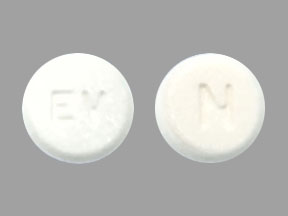
Zortress Coupons & Savings Card – Discount Prices from $241.18
Brand for: Everolimus
My prescription
Edit
0.5MG, Everolimus (180 Tablets)
Select pharmacy

CVS
$241.18
COUPON PRICE
Albertsons
$733.47
COUPON PRICE
Walgreens
$783.00
COUPON PRICE
Walmart
$1538.75
COUPON PRICEZortress savings card
Show this card to your pharmacist
CVS
$241.18
BIN
ID
PCN
GRP
011867
LH65C37666
HT
LABH001
Powered by
Related kinase inhibitors prescriptions
More prescriptions for tuberous sclerosis complex
Related kinase inhibitors prescriptions
More prescriptions for tuberous sclerosis complex
Price history for Zortress (brand) & Everolimus (generic)
180 Tablets, 0.5MG
Average retail price for Zortress
Average retail price for Everolimus
Average SaveHealth price for Everolimus
Our price history data is based on aggregated prescription data collected from participating pharmacies in America. Our prescription data updates daily to reflect the latest price changes. If you notice a missing data point, it means there wasn't sufficient data available to generate a monetary value for that date.
Over the last 12 months, the average discount price of Zortress is $384.39 using the SaveHealth savings card. That's an average savings of 75.07% on Zortress with our discount card.
*Retail prices are based on pharmacy claims data, and may not be accurate when we don't have enough claims.
Zortress (Everolimus) dosage forms
Dosage Quantity Price from Per unit 0.25MG 1 Tablet $11.49 $11.49 0.25MG 60 Tablets $55.00 $0.92 0.25MG 180 Tablets $128.39 $0.71 0.5MG 180 Tablets $241.51 $1.34 0.5MG 1 Tablet $13.25 $13.25 0.5MG 60 Tablets $90.04 $1.50 0.75MG 1 Tablet $16.72 $16.72 0.75MG 60 Tablets $130.49 $2.17 1MG 1 Tablet $22.47 $22.47 1MG 60 Tablets $268.36 $4.47
| Dosage | Quantity | Price from | Per unit |
|---|---|---|---|
| 0.25MG | 1 Tablet | $11.49 | $11.49 |
| 0.25MG | 60 Tablets | $55.00 | $0.92 |
| 0.25MG | 180 Tablets | $128.39 | $0.71 |
| 0.5MG | 180 Tablets | $241.51 | $1.34 |
| 0.5MG | 1 Tablet | $13.25 | $13.25 |
| 0.5MG | 60 Tablets | $90.04 | $1.50 |
| 0.75MG | 1 Tablet | $16.72 | $16.72 |
| 0.75MG | 60 Tablets | $130.49 | $2.17 |
| 1MG | 1 Tablet | $22.47 | $22.47 |
| 1MG | 60 Tablets | $268.36 | $4.47 |
What is the drug Zortress used for?
Zortress is used to prevent organ rejection in patients who have received a kidney or liver transplant. It is typically used in combination with other medications to help ensure the transplanted organ is not rejected by the body.
Is Zortress a chemo drug?
Zortress is not a chemotherapy drug. It is an immunosuppressant used to prevent organ rejection in patients who have received a kidney or liver transplant.
Is Zortress an immunosuppressant?
Yes, Zortress is an immunosuppressant. It is used to prevent organ rejection in patients who have received a kidney or liver transplant.
How much does Zortress cost?
The cost of Zortress can vary depending on factors such as the pharmacy, location, dosage, and whether the patient has insurance coverage. It is recommended to check with local pharmacies or consult with a healthcare provider or insurance company for the most accurate and up-to-date pricing information.
Does everolimus cause immunosuppression?
Yes, everolimus can cause immunosuppression. It is an immunosuppressant drug that can lower the body's ability to fight infections. Patients taking everolimus should be monitored for signs of infection and other potential side effects related to immunosuppression.
